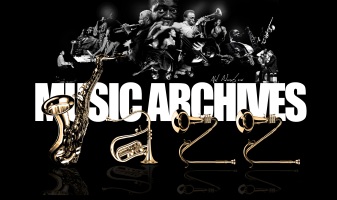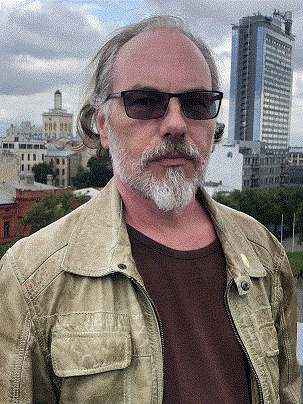
 |
Robert Northern a.k.a. Brother Ah, Dies at 86 |
Post Reply 
|
| Author | |
snobb 
Forum Admin Group 

Site Admin Joined: 22 Dec 2010 Location: Vilnius Status: Online Points: 28460 |
 Post Options Post Options
 Thanks(0) Thanks(0)
 Quote Quote  Reply Reply
 Topic: Robert Northern a.k.a. Brother Ah, Dies at 86 Topic: Robert Northern a.k.a. Brother Ah, Dies at 86Posted: 08 Jun 2020 at 4:08am |
|
A master of the
French horn, Mr. Northern was adept at both classical music and jazz. As
a bandleader, he was devoted to what he called “sound awareness.” Robert Northern, a masterly French horn player who hopscotched between the worlds of jazz and classical music before embarking on a solo career in which he made music that defied categorization, died on May 31 in Washington. He was 86. His wife, Ayana Watkins-Northern, said the cause was a respiratory illness that he had been battling for about a year. In his 20s and 30s, Mr. Northern played on some of the most storied orchestral recordings in jazz history, including “The Thelonious Monk Orchestra at Town Hall,” John Coltrane’s “Africa/Brass” and Charlie Haden’s “Liberation Music Orchestra.” He spent a decade in Sun Ra’s Arkestra, an experimental group that espoused a spiritualist ethos. He carried a similar approach into his own career as a bandleader. In that role, he went by the name Brother Ah, an artfully universalist moniker that bespoke his devotion to what he called “sound awareness.” By that, he meant the practice of treating all sound with the kind of close attention and respect that one would give to a great work of music. “I learned that every entity on Earth is communicating through sound,” Mr. Northern told The Washington Post in 2017. “Every animal, every bird, every insect. And if we hear it, we can be a part of it.” For the last two decades of his life, Mr. Northern presided over a weekly radio show, “The Jazz Collectors,” on WPFW, a community FM station in Washington, his adopted hometown. Playing a mix of jazz and spiritual music from across the globe, he became a pillar of the local airwaves, as well as an ambassador of jazz’s midcentury heyday. Robert
Anthony Northern was born on May 21, 1934, at his grandmother’s house
in Kinston, a small town in North Carolina. His parents were both from
the South but at that point were living in New York; soon after his
birth, Mr. Northern’s father, Ralph, was assaulted by a Klansman. He
fought back and won, then headed straight to the train station Ralph
Northern was a singer who performed at New York nightclubs and toured
the East Coast; he also worked for the city’s gas and electricity
company, Consolidated Edison. Robert Northern’s mother, Nadie (Bell)
Northern, had dreams of show business, too, but once in New York she
took up sewing professionally. She later worked in retail. The future Brother Ah began playing the bugle in elementary school, then graduated to the trumpet. As a boy growing up in the Bronx, he would sit on the fire escape and play along to the sounds around him: street vendors’ cries, horses’ hooves clopping, crickets chirping. Much as the alto saxophonist Eric Dolphy famously developed his craft by playing along to the songs of birds, the city’s soundscape became Mr. Northern’s teacher. “The hawkers used to come through the neighborhood, selling watermelons and vegetables from horses and wagons, and I would have my bugle and I would imitate all the calls,” he told the website Open Sky Jazz in 2018. “I began to imitate the barking of dogs in the street. Anything I heard.” He
took up the French horn as a teenager, filling a vacancy in his high
school symphony. His first public performance, in which he took a deft
horn solo on Dvorak’s “New World Symphony,” immediately led to a scholarship offer from the Manhattan School of Music. Image His education was interrupted when he received a draft notice in 1953 and joined the Air Force. After military service, he briefly returned to the conservatory, then traveled to Austria to study with Gottfried von Freiberg, the solo hornist at the Vienna Philharmonic. He played in philharmonic orchestras in Austria and Germany while performing on the side as a blues singer. He returned to New York in 1958, after his father fell fatally ill, to help tend to his family. Soon after, he joined the symphony at the Metropolitan Opera, where, he later recalled, as the only African-American member he was often subjected to racist abuse — reminiscent of what he had endured from white officers in the military. He was sometimes turned away from auditions he had been invited to after his racial identity became known. Still, he continued to work in orchestras, even while establishing himself as one of the few professional French hornists able to play jazz, alongside Julius Watkins and David Amram. He joined a small
group called the Society of Black Composers, while also working
regularly in the bands of singers like Peggy Lee and Johnny Mathis. He
taught music at a high school in the Bronx. He sometimes headed straight
to his day job after performing or rehearsing all night. After attending his first Sun Ra performance, at Slugs’ Saloon in the East Village in the mid-1960s, Mr. Northern felt an immediate kinship. “It wasn’t like a jazz band, this was like an orchestra,” he said. “And I went wild.” He quickly joined the Arkestra and spent the next decade as a member. During this period, Sun Ra was pushing into abstract sonic terrain, blending free improvisation, space-age music and influences from across the globe with his background in big-band jazz. In 1970, through the trumpeter Don Cherry, Mr. Northern took a teaching position at Dartmouth College; it was there that students began calling him Brother Ah. He resisted the name until some students told him about the spiritual properties of the word “Ah” in other languages. In ancient Egypt, he was told, Ra had been the god of the sun, while Ah was the deity of the moon. Mr. Northern also began traveling regularly to Ghana and elsewhere in Africa, studying the music of his ancestors. In 1972, the Strata-East label released his first album as a leader, “Sound Awareness,” a spiritual-jazz collection featuring the drummer Max Roach on guest vocals and Mr. Northern on a wide range of instruments. Comprising two lengthy tracks, the recording blended his love for natural sounds, the stylistic palette of Sun Ra and the lessons he had gleaned from his studies in Africa. He self-released two more albums: “Move Ever Onward” (1975) and “Key to Nowhere” (1983). In 2016, Manufactured Recordings put out a boxed set, “Divine Music,” containing three previously unreleased albums he had made in the ’70s and ’80s. He eventually settled with Ms. Watkins-Northern in Washington, where they raised their daughter, Dara. Both survive him, as do two sons from a previous marriage, Alex and Bushcka, and a brother, Gilbert. Mr. Northern continued to teach in schools and youth programs until shortly before he died. An
earlier version of this obituary referred incorrectly to the drummer
Max Roach's participation in Mr. Northern's album "Sound Awareness." He
was a guest vocalist; he did not play drums on the album. from www.nytimes.com Edited by snobb - 08 Jun 2020 at 4:11am |
|
 |
|
Post Reply 
|
|
|
Tweet
|
| Forum Jump | Forum Permissions  You cannot post new topics in this forum You cannot reply to topics in this forum You cannot delete your posts in this forum You cannot edit your posts in this forum You cannot create polls in this forum You cannot vote in polls in this forum |